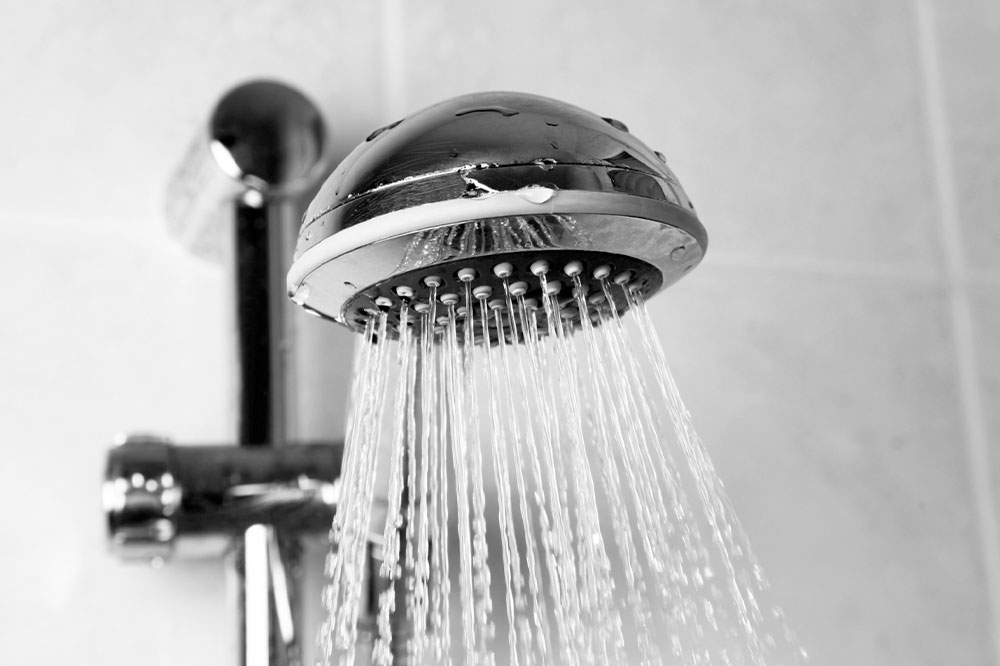8 common mistakes to avoid while showering

Showering may seem like a simple act, but there are some common showering mistakes that one could make that may harm skin health. This easy 10-minute ritual is important for maintaining daily hygiene and ensuring that one does it correctly. This practice is crucial for good skin and hair health. Here are some things one needs to be careful of and other tips that may help avoid the repercussions of these common mistakes.
Using excessive soap
Yes, it is a cleaning agent, but it can also quickly dry out the skin when used in excess. Many soaps are available in the market, but try looking for a soap with a moisturizing ingredient or something called stearic acid. This is an ingredient that is used to harden the soap, and it helps in creating a thick lather that feels velvety to the skin. Thanks to its occlusive properties, using this ingredient in soap will keep the skin hydrated and prevent moisture loss from the surface.
Frequent showers
Taking too many unnecessary showers in a day may cause the skin’s natural oils to dry, leaving it dry and flaky. It is important to stay clean and hygienic to avoid any infections. However, bathing more than three times a day is a waste of natural skin oils and can lead to infection too. If your skin gets too dry and cracked, bad bacteria can easily enter the surface and cause skin-related issues. You do not have to constantly stay in a sterile environment as it will only lower your immunity unless you are sick and are advised to stay in a specifically clinically sterile environment.
Not washing the towels for many days
Yes, towels are used to clean your clean body after a shower, but what often goes unnoticed is that the towels are not left to dry properly enough. They need sunlight and a dry environment to avoid the infestation of bacteria that could develop in the damp environment. A dirty, damp towel can cause skin issues like warts, athlete’s foot, jock itch, and even toenail fungus. It is advised to change your towel once a week at least and dry it properly after every use. If you stay in a humid region, wash the towels more often and keep dry spare towels.
Not cleaning the loofah regularly
These all seem like self-cleaning products as they get scrubbed with soap every time you shower, so it may seem like they do not need a wash or cleaning. But this is a common myth that needs to be addressed. A loofah should be cleaned every week in a bleach solution to avoid any development of bacteria in the damp loofah. You can use a diluted bleach solution and let the loofah soak in it for five minutes before rinsing it with water. Drying it out under the sun is advised so that the bacteria does not dwell on its moist body. Also, you should ideally replace a loofah every month, whether it is a cloth material or other natural material. A plastic loofah can be replaced every two months to avoid possible infections.
Excessive hot water showers
They are the most comforting, for sure, especially during winter. But what is most often missed during this hot shower ritual is that this water temperature does more harm than good for the skin. It can remove the natural oil from the skin’s surface and leave it dry and itchy. This is especially true for anyone already dealing with skin conditions like psoriasis or eczema. Therefore, to prevent any other skin-related problems, the temperature of the water needs to be controlled. It is recommended to take a shower with lukewarm water for not more than 10 minutes. This can prevent unnecessary damage to the skin.
Washing hair too often
If you are washing your hair daily, this is especially for you. Consider skipping this step from your daily shower routine. Unless you have an extremely oily scalp and are advised by the dermatologist to wash daily, you are only stripping the scalp of its natural oils, which can lead to multiple hair issues. If you are going to the gym, it is advised that you keep a proper hair wash routine so that you don’t feel inclined to wash your hair daily. Wash them only on the days that you are doing an intensive workout, which will make you sweat a lot. Also, be mindful of the products you are using. Ensure that the ingredients are safe to use and do not do more harm than good when cleaning the scalp.
Not having a grab bar installed
This may not seem like an important addition when you are young, but it should be added to all the bathrooms. Shower safety is important, so make sure that you install a grab bar in the shower and also anti-slip mats to avoid any falls. This is especially important for anyone who is staying alone and does not have access to help easily. If you have seniors living with you, this is an essential addition to the bathroom.
Not moisturizing the skin right after a shower
An important self-care step post-showering is applying moisturizer on your skin to help hydrate it. A lot of people wait till they are completely dry to put on the moisturizer, and this is a mistake you can avoid. Get your moisturizer in the bathroom and put it on damp skin. This helps the product get absorbed better and leaves a hydrating effect for long hours. This is especially advised for those dealing with skin issues like eczema and psoriasis and who need help with keeping skin itch-free. Make sure you consult the dermatologist for effective skin products for the best results.







